The students whose visas were revoked came from more than 180 colleges and universities across the United States. Some students also had their SEVIS status terminated, meaning they could no longer legally stay in the United States.
Unexpected changes in student visa management
Previously, on March 27, the number of revoked visas was more than 300, according to US Secretary of State Marco Rubio. Thus, after less than 3 weeks, the number has increased more than 3 times. In addition, US universities have also had to suspend recruitment or cut graduate enrollment (especially in the natural sciences ) because federal funding has been "frozen," according to Nature and NPR . In addition, research funding has also been cut.
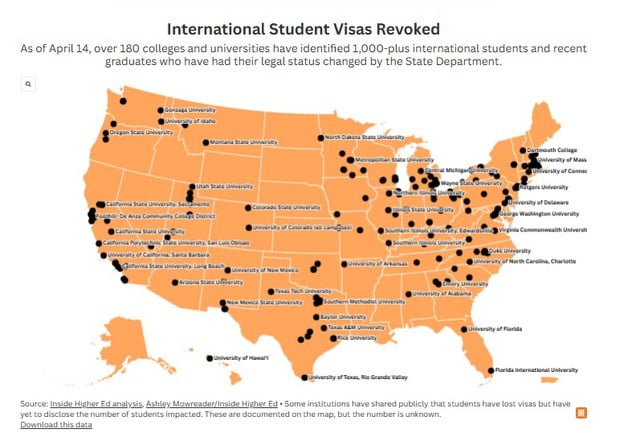
More than 1,000 students have had their visas revoked from more than 180 universities and colleges across the United States.
Photo: Inside Higher Ed screenshot
Regarding the revocation of student visas, responding to the Guardian , California immigration lawyer Shenqi Cai said that the termination of SEVIS this time is quite unusual and 90% of the recorded cases are students who have been fingerprinted, usually due to violations of the law, the severity of the offense will depend on each state. In addition, the Office of International Students & Scholars, Boston University, posted on its website that, normally, the US State Department will only revoke student visas if the student is arrested or convicted of a crime in the US. However, currently, this office believes that the federal government also relies on other sources of information such as immigration history in the US or social media activities to evaluate and revoke visas of students who are believed to have activities that threaten national security or foreign policy.
NAFSA (Association of International Educators ) documents recent visa revocations and SEVIS terminations and notes that these occur in multiple states, affect all undergraduate and graduate levels, and are not targeted at the nationality of the international student. Notably, NAFSA's statistics show that the first SEVIS terminations were cited as "Otherwise Failing to Maintain Status" with notes on specific provisions of the Immigration and Nationality Act (INA) that were the basis for the SEVIS termination. However, the reasons have recently been changed to "Others" with vague references to a criminal record check "and/or" visa revocation, but without citing the INA.
The University of Southern California provides information that, typically, SEVIS terminations are initiated by designated school officials based on changes or violations of a student’s status. However, the Department of Homeland Security (DHS) has recently terminated students’ SEVIS records on its own.
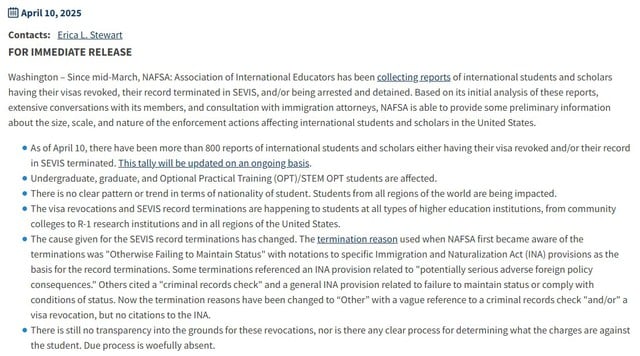
NAFSA Statistics on Recent Visa Revocations
Vietnamese international students are surprised and confused but…
With such sudden and unprecedented changes, organizations and universities have been giving advice, especially on the legal side, to international students.
For example, NAFSA reminds international students to bring with them documents that prove their legal presence in the U.S., such as an I-20 or I-94, when they leave home. Some universities provide information and specific explanations about the difference between visa revocation and SEVIS termination, and where to find an immigration attorney or offer free, ongoing counseling sessions.
N.Khang (North Carolina) shared that the school offers two free consultation sessions per week for international students. "Up to now, the school has had 2-3 international students whose visas have been revoked. The school was quite surprised because they were not notified in advance. However, the school has provided timely support for these students to complete their studies online."
N. Thuan (Texas) said he was a little worried so he made an appointment to meet with his instructor. This instructor was also surprised by the recent visa revocation and some of the reasons given in the press, and at the same time, he will try to protect and support the faculty's international students.
When invited to participate in interviews, some international students refused because they were afraid of making sensitive statements or possibly affecting their visas. Some international student groups on social networks also mostly discussed information about visa revocation, stopping SEVIS, or even shared new legislation on abolishing the OPT program proposed by some congressmen. OPT (Optional Practical Training) is a program that allows new international graduates to stay in the US to work. For STEM majors, OPT lasts 3 years.
In general, Vietnamese students are somewhat worried and confused. T.Ca (California), M.Thu (Texas) and N.Quynh (California) all shared that they and their friends are uneasy. Thu is especially worried when she is transferring from master's to doctoral level. More than 250 international students at universities in the state have had their visas revoked, as of April 9, according to the Texas Tribune .
"However, I researched carefully and found that the cases are often due to non-compliance with regulations or violations of laws in the US such as speeding. This shows that maintaining visa status does not only depend on academic records but is also closely related to awareness of compliance with the law and culture of the place where you live," Thu shared. Therefore, Quynh, Thu, and Ca said that if international students complete their studies well and comply with the law, they will be less affected.
Phuong (under OPT program, Massachusetts) shared that she was quite surprised that immigration was aimed at international students. She thinks that currently, besides US citizens, everyone is worried (because there are even cases of green cards being revoked - i.e. legal permanent residents). Therefore, in the near future, Thu will limit sharing opinions or political information on her personal page and will follow the news closely, acquiring knowledge to protect herself.
Similarly, N.Thuan and N.Khang said that in addition to maintaining a high GPA, they also pay more attention to carrying identification documents and being in the US legally and driving more carefully. N.Khang also advised his wife of similar information. In addition, N.Khang's school also recommends that international students limit posting political information on social networks.
What should students do when their visa is revoked?
International students are granted F-1 or J-1 visas (1-year validity for Vietnamese students) to enter/exit the US. When the visa expires, international students are still allowed to stay in the US legally based on the I-20. I-20s usually expire when the course ends. Therefore, normally when the visa is revoked, international students are still allowed to stay in the US to complete their studies. However, when leaving the US and the visa expires (or has been revoked), international students are not allowed to enter the US and must renew (or apply for a new) visa.
While enrolled, SEVIS (Student and Exchange Visitor Information System) is a government database that tracks international students and scholars with F-1 and J-1 visa status. Termination of SEVIS by the Department of Homeland Security will terminate the lawful status of an international student in the United States, meaning that the student will be required to leave the United States within the permitted time.
When notified of visa revocation or SEVIS suspension, students should consult an immigration attorney.
Currently, American universities have issued notices and support for cases of visa revocation or SEVIS termination. Most international student offices advise international students to seek legal assistance from immigration law offices to protect their inherent rights and complete their studies successfully.
Many international students whose visas were revoked in the states of Michigan, Georgia, and California have sued the US Department of Homeland Security (DHS), according to the AP news agency. On April 9, Xiaotian Liu, an international doctoral student in computer science at Dartmouth College (New Hampshire), filed a lawsuit because his visa was revoked without reason, without notice, and without response. During an emergency hearing, the District Judge issued a temporary restraining order on the revocation of the student's visa. This student can return to normal school until a final decision is made in the next few weeks.
Source: https://thanhnien.vn/sinh-vien-viet-nam-can-trong-sau-hang-ngan-thi-thuc-du-hoc-my-bi-thu-hoi-185250415142159394.htm



![[Photo] Closing ceremony of the 18th Congress of Hanoi Party Committee](https://vphoto.vietnam.vn/thumb/1200x675/vietnam/resource/IMAGE/2025/10/17/1760704850107_ndo_br_1-jpg.webp)




![[Video] Latest regulations on teacher recruitment, effective from 2026](https://vphoto.vietnam.vn/thumb/402x226/vietnam/resource/IMAGE/2025/10/17/1760715059516_gv-png.webp)

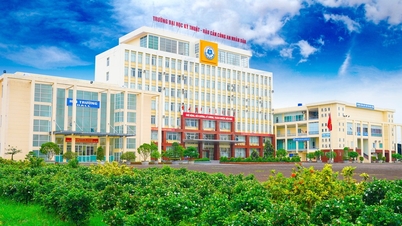

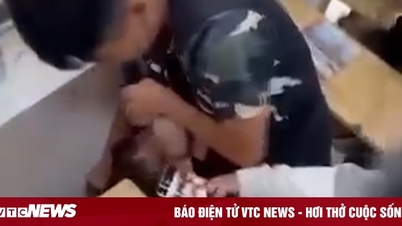

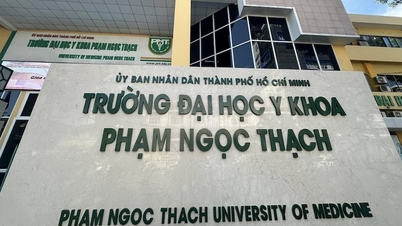

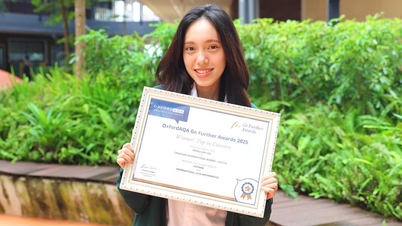
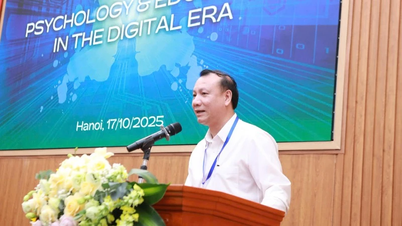




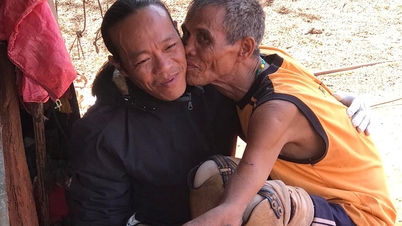
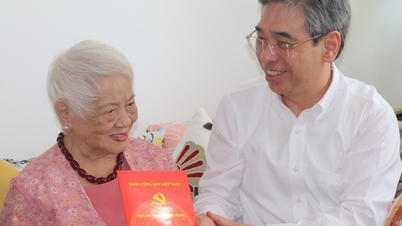
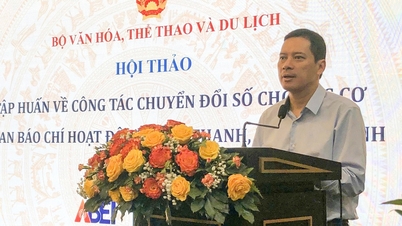



![[Photo] Nhan Dan Newspaper launches “Fatherland in the Heart: The Concert Film”](https://vphoto.vietnam.vn/thumb/1200x675/vietnam/resource/IMAGE/2025/10/16/1760622132545_thiet-ke-chua-co-ten-36-png.webp)





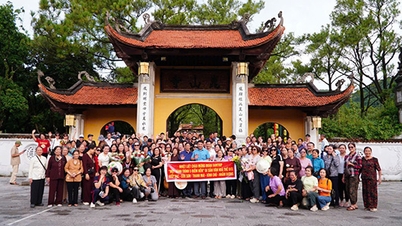




















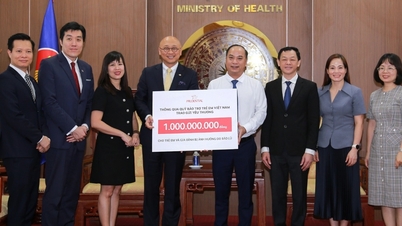










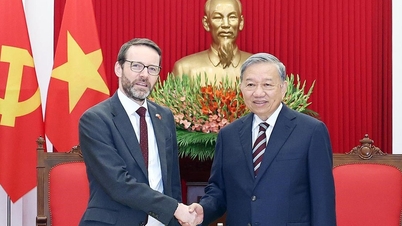
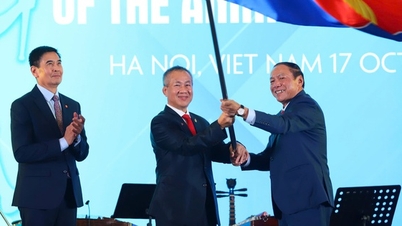



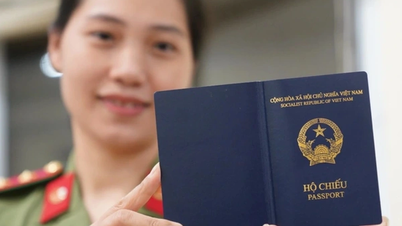
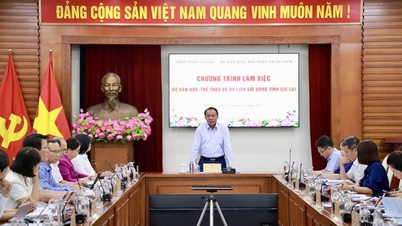
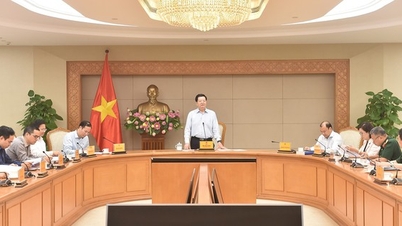
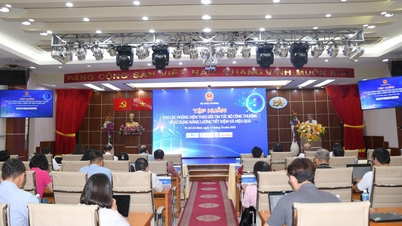

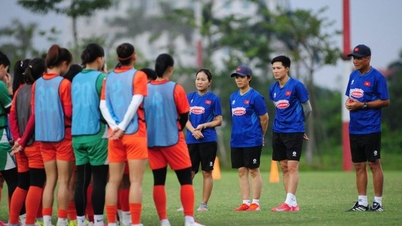
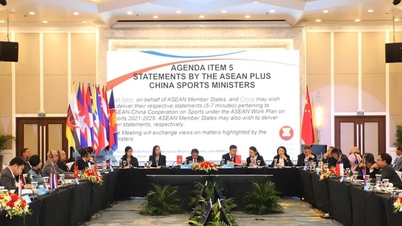
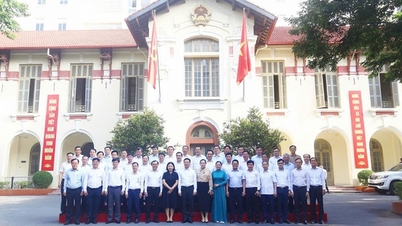



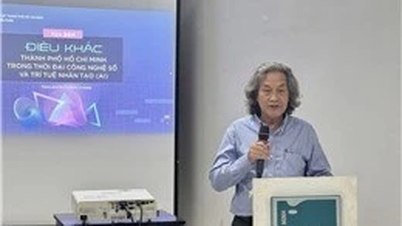























Comment (0)